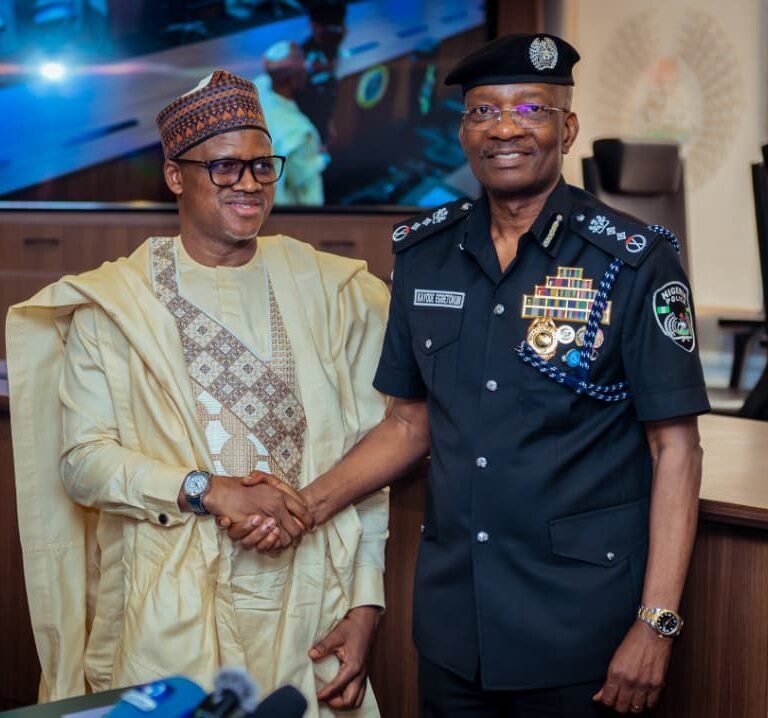
By Ameh Gabriel
Abuja, Nigeria – June 25, 2025
The Centre for Democracy and Development (CDD) held a moving memorial lecture in honor of two iconic scholar-activists Dr. Tajudeen Abdul-Raheem and Prof. Abubakar Momoh with a powerful call to reimagine democracy in Africa for true development.
Held under the theme “Reclaiming Democracy for Authentic African Development,” the event brought together intellectuals, activists, policymakers and civil society leaders to reflect on the lives and legacies of the late pan-Africanists and the democratic future of the continent.

Opening the session, John Ejoha Odah, Chair of CDD’s International Governing Council, and Dr. Dauda Garuba, Director of CDD, called for an urgent interrogation of Africa’s democratic journey, which they argued has been largely shaped by Western liberal models that have failed to address the continent’s socio-economic realities.
“Sixty years post-independence, Africa continues to search for a democratic system that is authentic and tailored to its realities,” said Dr. Garuba. “While we embraced liberal democracy, the outcomes have failed to deliver inclusive development or security. We must rethink and reclaim democracy for African development.”
Highlighting Africa’s continuing challenges conflict, poverty, political disillusionment, terrorism, and the rise of transactional politics Garuba emphasized that a redefined, people-centric democracy is critical for the continent’s transformation.
“Democracy Stole My Friends” – Prof. Ibeanu’s Poignant Tribute
The keynote lecture was delivered by Professor Okechukwu Ibeanu, renowned political scientist from the University of Nigeria, Nsukka, who offered a deeply personal and philosophical tribute to his late friends—Dr. Abdul-Raheem (fondly known as Taju) and Prof. Momoh (Abu).
Reflecting on their shared journey as activists and thinkers, Ibeanu lamented that “democracy happened” and scattered the dreams and solidarity that once united them. “It took my friends from me,” he said. “Taju was always organizing. Abu was always theorizing. And now, they are gone—but their voices remain.”
Ibeanu delivered a scathing critique of Africa’s current democratic systems, describing the prevailing model as “Afro-liberalism”a form of democracy steeped in electoral ritualism, elite dominance, and economic exclusion. According to him, this system has deliberately separated “voice from welfare,” ensuring the masses can vote but remain impoverished.
“The ruling class has ensured that democracy is about procedures not about development. It is about voting, not eating. It is about unity that is manufactured, not solidarity that is real,” Ibeanu declared.
Citing examples from ancient Athens to postcolonial Africa, he argued that genuine democracy is inseparable from economic justice, access to land, education, and health. “In African societies, the right to speak and the right to eat were never divorced. But today, we are made to believe we can only have one.”

He further criticized the dominance of market economics, noting that it fosters inequality rather than collective prosperity. “This economy is not designed for welfare it is built for the survival of the fittest. But Africa needs solidarity, not just profit.”
Taju and Abu’s Legacy Lives On
Both Abdul-Raheem and Momoh were celebrated for their unflinching commitment to pan-Africanism, intellectual rigor, and activism. Prof. Ibeanu imagined what their response would be to today’s political crisis in Africa:
“Taju would have written thousands of postcards urging us to organize. Abu would be developing new critiques and frameworks for resistance.”
The lecture ended with a consensus that reclaiming democracy in Africa requires going beyond electoral reforms. It must involve challenging elite capture, redefining power, reuniting democracy with development, and embracing African values of community and justice.

The CDD reaffirmed its commitment to advancing this vision at national, regional, and continental levels.
“We are not here just to remember,” said Dr. Garuba. “We are here to reclaim. For Taju. For Abu. For Africa.”






